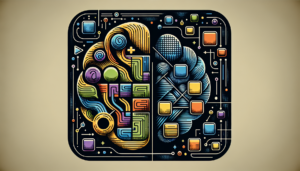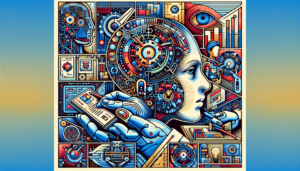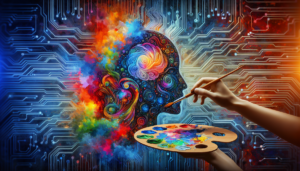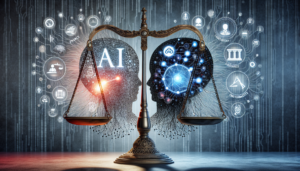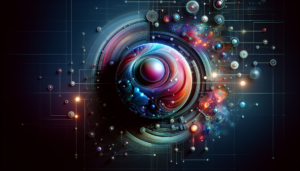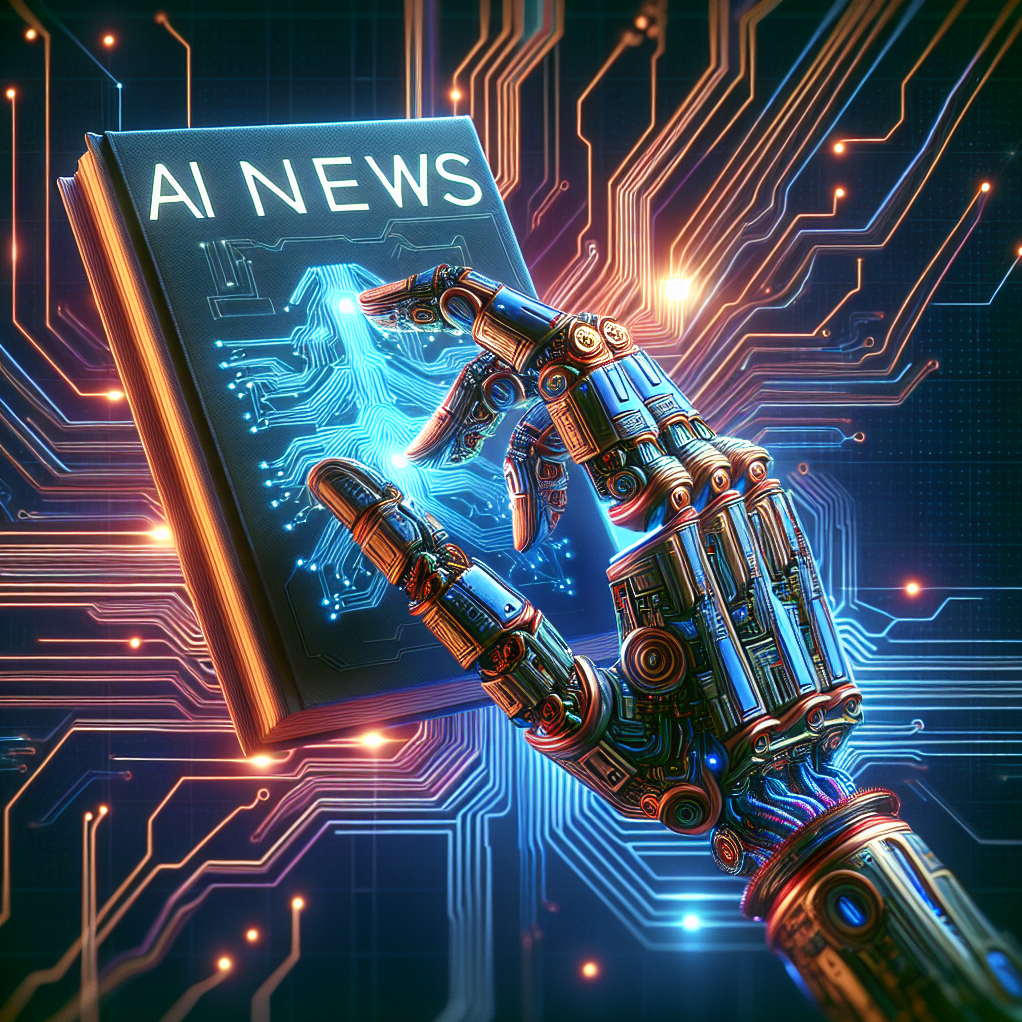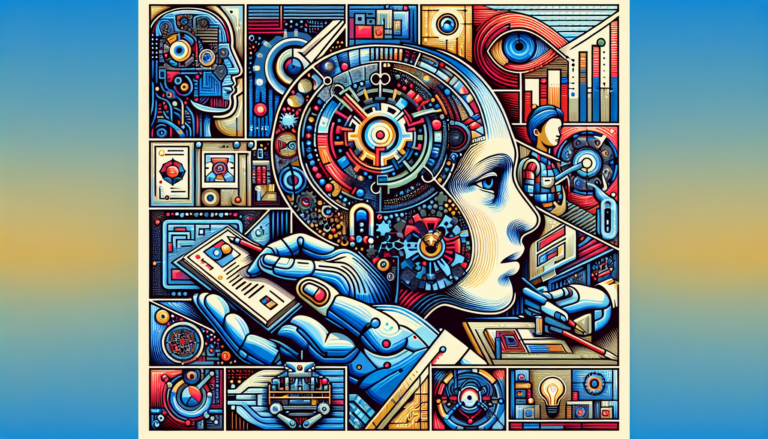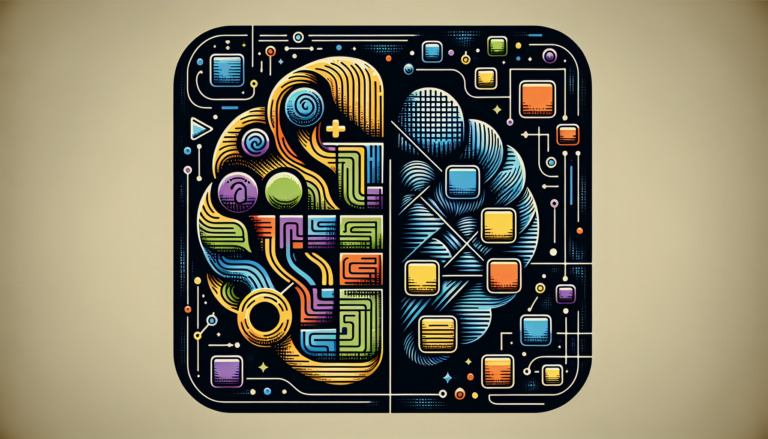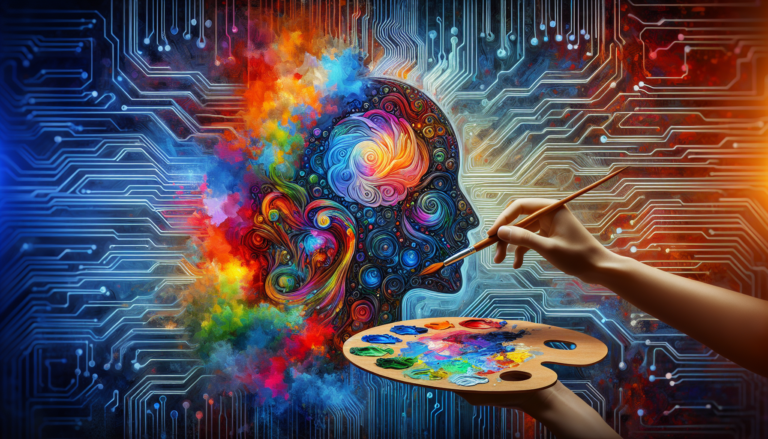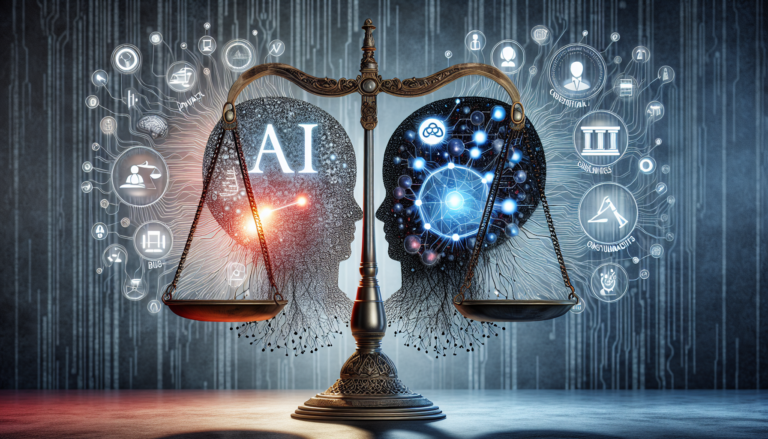Imagine having a virtual companion who possesses a wealth of knowledge on a variety of topics and is always ready to engage in an enlightening conversation with you. In this article, we will delve into the expertise of ChatGPT and explore whether it can truly be considered an expert system. From its ability to provide factual information to its knack for understanding complex nuances, you’ll discover why ChatGPT has been captivating users with its vast knowledge and friendly demeanor. Whether you’re seeking to satisfy your curiosity or expand your understanding, ChatGPT is here to help you navigate the depths of knowledge with ease.
Overview of ChatGPT
Introduction to ChatGPT
ChatGPT, developed by OpenAI, is an advanced language model that utilizes artificial intelligence (AI) to engage in conversational dialogue with users. It is designed to generate responses that mimic human-like interactions, providing an impressive level of comprehension and knowledge on a wide range of topics. ChatGPT has garnered attention for its ability to provide detailed and informative responses, making it a valuable tool in various domains.
How ChatGPT Works
ChatGPT operates by utilizing a combination of pretraining with language models, fine-tuning through reinforcement learning, and learning from human feedback. Initially, it is pretrained on a large corpus of text from the internet, allowing it to grasp the complexities of language and develop a strong foundation of knowledge. The model is then fine-tuned using reinforcement learning techniques to ensure it produces more coherent and contextually appropriate responses. Human feedback plays a vital role in further refining ChatGPT and minimizing biases or errors over time.
Key Features of ChatGPT
ChatGPT offers numerous key features that contribute to its expertise. It demonstrates a wide range of knowledge, making it capable of engaging in discussions on various subjects. The model’s conversational abilities are impressive, enabling it to provide detailed and informative responses that make users feel understood. Additionally, ChatGPT can handle ambiguous queries, often seeking clarification to offer more accurate answers. Although the system has limitations, such as its inability to reason with external information, its features make it a powerful tool in different applications.
Expertise of ChatGPT
Understanding Expert Systems
expert systems refer to AI-powered technologies that possess knowledge and expertise in a specific domain. These systems are designed to perform complex tasks, providing insights and solutions that emulate human expertise. While ChatGPT exhibits a level of expertise, it is not a traditional expert system as it lacks domain-specific knowledge and relies on its pretrained knowledge to respond to user queries.
Defining Expertise in AI
In the context of AI, expertise refers to the ability of a system to accurately understand and respond to user queries, leveraging its knowledge and comprehension of a specific domain. While ChatGPT might not possess deep domain-specific expertise, it compensates for it by leveraging its broad understanding of different subjects and its language processing capabilities.
Determining the Expertise of ChatGPT
To assess the expertise of ChatGPT, it is essential to evaluate its performance in providing accurate and insightful responses. While it can exhibit a high level of understanding and generate informative answers, it is important to remember that ChatGPT’s expertise is derived from its training data. Therefore, while it can parse and interpret a vast amount of information, it lacks the ability to reason with up-to-date external information.
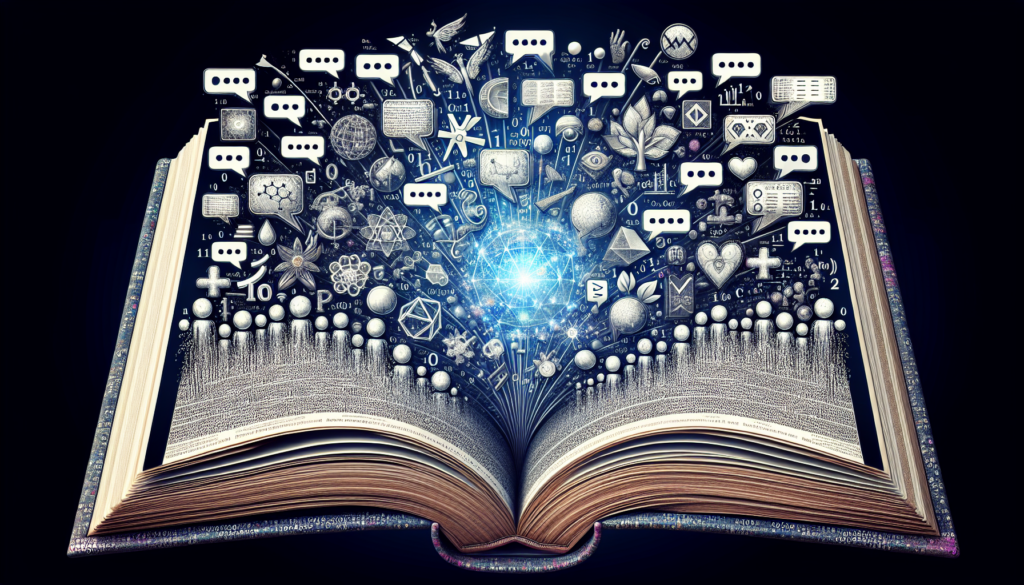
Capabilities and Limitations
Wide Range of Knowledge
ChatGPT demonstrates its capability by exhibiting a broad range of knowledge. From general knowledge to specific subjects, it is able to provide users with relevant and informative responses. This versatility makes it a valuable tool in various domains where access to diverse information is crucial.
Conversational Abilities
One of ChatGPT’s notable strengths is its conversational abilities. It excels at engaging in back-and-forth discussions with users, adapting its responses based on provided context. This fosters a more interactive and realistic conversational experience, enhancing user satisfaction and engagement.
Responses to Ambiguous Queries
While ChatGPT demonstrates an impressive ability to handle various inquiries, it might encounter difficulties with ambiguous queries. In such cases, it may seek clarification from the user to provide more accurate responses. Although this ensures accuracy, it can potentially interrupt the flow of conversation and necessitate extra effort from users to ensure effective communication.
Potential Biases and Mistakes
Despite efforts to minimize biases, ChatGPT can still exhibit some biases or generate incorrect responses as it relies on patterns and information from its training data. Users must be cautious and critically evaluate the information provided by ChatGPT to prevent the propagation of misinformation.
Inability to Reason with External Information
A notable limitation of ChatGPT is its inability to reason with external information. While it can provide knowledgeable responses based on its pretraining and fine-tuning, it cannot access real-time data or retrieve facts beyond what it has been taught. As a result, it may not be suitable for complex tasks that require the most up-to-date information.
Evolution and Training
Pretraining with Language Models
ChatGPT’s expertise is developed through pretraining using language models. By leveraging a vast corpus of text from the internet, the model gains a comprehensive understanding of language structure and acquires knowledge on a broad range of topics. This pretraining stage sets the foundation for ChatGPT’s subsequent learning processes.
Fine-Tuning with Reinforcement Learning
After pretraining, ChatGPT undergoes a fine-tuning process using reinforcement learning techniques. It is exposed to a dataset containing demonstrations and comparisons to determine the most appropriate response in various contexts. This fine-tuning phase is crucial for refining the model’s output and ensuring more coherent and contextually appropriate responses.
Learning from Human Feedback
Human feedback plays a vital role in training ChatGPT. OpenAI utilizes a process called supervised fine-tuning, where human AI trainers rank different model-generated responses for a given input, providing an avenue for reinforcement learning. This iterative process helps improve the model over time, reducing biases and errors while enhancing its overall expertise.
Addressing Limitations and Improving Expertise
OpenAI acknowledges the limitations of ChatGPT and aims to address them by refining training techniques and incorporating user feedback. By prioritizing the reduction of biases, eliminating errors, and improving the quality of responses, OpenAI strives to continually enhance ChatGPT’s expertise and provide users with a more reliable and accurate AI-powered conversational tool.

Applications of ChatGPT
Customer Support
ChatGPT’s conversational abilities and broad knowledge make it an ideal tool for customer support applications. It can provide automated responses, answer frequently asked questions, and assist customers in troubleshooting common issues. Its ability to adapt to context helps create a personalized support experience and streamline interactions with customers.
Content Generation
ChatGPT’s expertise extends to content generation, where it can assist in creating written material, such as articles, blogs, or social media posts. It can offer suggestions, help refine ideas, and provide informative insights. Content creators can leverage ChatGPT’s language proficiency and diverse knowledge, saving time and gaining new perspectives.
Programming Assistance
With its understanding of various programming languages, ChatGPT can serve as a valuable programming assistant. It can help programmers troubleshoot code, suggest solutions, and explain programming concepts. ChatGPT’s ability to understand natural language queries simplifies the process of seeking programming assistance, making it accessible to both novices and experienced developers.
Educational Tool
ChatGPT’s wide range of knowledge and conversational abilities make it a valuable educational tool. It can provide explanations, answer questions, and engage in interactive lessons. Whether assisting students, educators, or lifelong learners, ChatGPT’s expertise can supplement traditional learning methods and enhance the accessibility of educational resources.
Ethical Considerations
Potential for Misinformation
As with any AI technology, ChatGPT has the potential to generate and propagate misinformation. While efforts are made to minimize biases, the model can still exhibit inaccuracies or present subjective information. Users should exercise caution, critically evaluate responses, and cross-reference information from reliable sources to mitigate the risk of misinformation.
Bias in Generated Content
Bias can inadvertently be present in the responses generated by ChatGPT due to biases present in the training data. OpenAI aims to address and mitigate biases in ChatGPT by refining training processes and actively seeking user feedback. Users should be aware of potential biases and engage in open dialogue to work towards further reducing them.
Monitoring and Controlling Usage
To ensure responsible deployment, it is crucial to monitor and control the usage of ChatGPT. This includes setting appropriate guidelines, implementing measures to prevent malicious use, and considering the impact on society. OpenAI is committed to providing transparency and working closely with users and the wider community to identify and address any potential risks associated with ChatGPT usage.
Mitigating Risks
Improved Training Techniques
OpenAI continuously strives to improve ChatGPT’s training techniques to minimize biases and inaccuracies. By refining the reinforcement learning process and incorporating diverse datasets, OpenAI can train ChatGPT to provide more reliable and contextually accurate responses. This ongoing effort plays a crucial role in mitigating risks and enhancing ChatGPT’s expertise.
Human-in-the-Loop Approach
To address the limitations and risks associated with ChatGPT, OpenAI emphasizes the importance of a human-in-the-loop approach. By involving human AI trainers in the fine-tuning process and soliciting user feedback, ChatGPT’s outputs can be refined and monitored more effectively, allowing for the detection and rectification of potential issues.
Ensuring Transparency
OpenAI places great emphasis on transparency to mitigate risks associated with ChatGPT. By openly sharing information on its methodology, training processes, and limitations, OpenAI enables users to make informed decisions and critically evaluate ChatGPT’s responses. This commitment to transparency fosters trust and accountability, reducing potential risks and enhancing user confidence.
Social Impact
Assisting and Augmenting Human Work
ChatGPT’s expertise can significantly assist and augment human work in various domains. By automating repetitive tasks and providing quick access to information, it frees up human resources to focus on more complex and creative endeavors. This collaboration between ChatGPT and humans has the potential to enhance productivity and efficiency across industries.
Enhancing Accessibility
ChatGPT’s conversational abilities and broad knowledge base contribute to its potential for enhancing accessibility. It can act as an intermediary, breaking down language barriers and providing valuable information to individuals who may have limited access to resources or expertise. Its ability to adapt to user needs and preferences makes it an inclusive tool for diverse populations.
Potential Job Displacement
While ChatGPT possesses the potential to automate certain tasks, its goal is to augment human capabilities, not replace them. As with any technological advancement, there may be concerns regarding job displacement in certain fields. However, it is important to recognize that ChatGPT can create new opportunities, enabling individuals to focus on higher-level tasks and fostering the development of new professions.
User Feedback and Experience
Evaluating User Satisfaction
OpenAI places a strong emphasis on user feedback and continuously evaluates user satisfaction to enhance ChatGPT’s performance. User feedback plays a crucial role in identifying areas for improvement, refining the model’s responses, and eliminating biases or errors. By actively seeking user input, OpenAI ensures that ChatGPT evolves based on the needs and expectations of its users.
Addressing User Concerns
OpenAI acknowledges and addresses user concerns related to ChatGPT’s limitations and potential risks. By actively engaging in dialogue with users and the wider community, OpenAI can gain valuable insights and perspectives, allowing for the development of proactive measures to mitigate concerns and ensure responsible deployment.
Feedback-Driven Improvements
User feedback drives the iterative improvement process of ChatGPT. OpenAI leverages user input to enhance the model’s performance, understand user expectations, and address any concerns. This feedback-driven approach reinforces OpenAI’s commitment to continuously improving ChatGPT and maximizing its value for users across various applications.
Future Development
Advancements in AI Technology
As AI technology advances, the future development of ChatGPT holds promising potential. Through continuous research and development, AI models like ChatGPT can become more sophisticated in their understanding and generation of responses. Advancements in areas such as reasoning capabilities and external information integration could further enhance ChatGPT’s expertise.
Enhancing Expertise
OpenAI aims to further enhance ChatGPT’s expertise through ongoing research and training techniques. By expanding its knowledge base, refining its language processing capabilities, and addressing limitations, OpenAI hopes to continually improve ChatGPT’s expertise in providing accurate and insightful responses.
Ensuring Responsible Deployment
As ChatGPT and similar AI models progress, responsible deployment remains a priority. OpenAI recognizes the importance of addressing ethical considerations, monitoring system usage, and actively engaging with users and the wider community to ensure that ChatGPT’s development and deployment align with societal expectations and values.
In conclusion, ChatGPT offers an impressive level of expertise in the realm of language processing and conversational responses. While it is not a traditional expert system, its broad knowledge, conversational abilities, and continuous learning contribute to its expertise in providing informative and contextually-appropriate answers. By acknowledging its limitations, addressing potential risks, and ensuring responsible deployment, ChatGPT can be a valuable tool across various domains, augmenting human capabilities and enhancing accessibility in an ever-evolving AI landscape.

